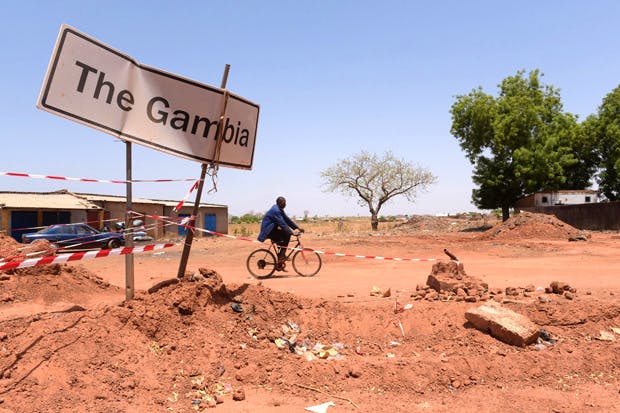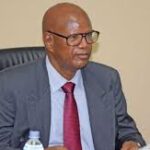
The trend that the raging debate on secularism is taking seems to have plunged this country into quite an unnecessary heightened tension between the secularists and the religious extremists. While we can understand that the great majority of those making such disparaging remarks about secularism have not the slightest idea about the word ‘secular’, what is however disappointing is the involvement of a few well-educated people in fanning the tension by deliberately misinterpreting the meaning of the concept of secularism. One would wonder what those few intellectuals hope to achieve by seeking to plunge this country into a religious conflict.
Obviously, everyone agrees that the Gambia has ever been a secular state with the law guaranteeing every Gambian and non-Gambian living in this country the right to practice whatever religion they choose to follow, and it had never been an issue, whether or not the word ‘secular’ is put in the Constitution. According to one dictionary definition, Secularism simply means; “the principle of separation of the state from religious institutions”.
However, one would be tempted to question why the Christians and the secularists are demanding that the word be specifically entrenched in the Constitution when it had never been the case in our past Constitutions. The answer should be quite obvious to any reasonable person. As the Wollofs say; “anyone whose grandparent was killed by a ‘ndobin’ (hornbill) would be scared of anything black”.
Therefore, considering the unilateral declaration of the Gambia as an Islamic Republic in 2015 by ex-President Yahya Jammeh, it makes quite a lot of sense for the secularists and the Christians, in particular, to demand a much stronger guarantee that never again will another head of state do such a thing; and putting the word ‘secular’ in Section 1 of the Constitution would definitely be quite re-assuring to the Christian community in particular. If our neighbour, Senegal, which has much more powerful Islamic brotherhoods to which most of these extremists look up to for spiritual guidance, can have secularism specifically included in its Constitution, why not the Gambia?
It is indeed quite dishonest for these extremists to deliberately misinterpret secularism as anti-religion when it simply means state neutrality with regards to religion, creating a level playing field within which all faiths can co-exist peacefully and harmoniously. Therefore, it is not anti-religion but rather a key ingredient of religious tolerance within a multi-religious country like the Gambia.
We all know that this debate is part of the vestiges of the Jammeh dictatorship when people were conditioned to think and behave in a particular way with regards to religion. What is even more interesting is the fact that most of those behind the vitriolic campaign against the inclusion of the word ‘secular; in the Constitution are the very people with the worst record during that period.
Most of them not only kept mute despite all the atrocities that were being committed against ordinary Gambians, but some of them also fully participated in the process by constantly praise singing and patronising President Jammeh in almost everything that he was doing, apparently because of fear, as well as the crumbs they used to get from him. We have all heard from the Truth, Reconciliation and Reparations Commission (TRRC) the horrible things that the Jammeh regime were committing in this country but none of those making noises about secularism ever raised their voices against such atrocities. All that we have been hearing from them was to endorse virtually everything he did, even to the extent of conferring on him all sorts of grandiose Islamic titles like Nasirul Deen.
In addition to the unilateral declaration of the Gambia as an Islamic Republic, ex-President Jammeh also encouraged the building of mosques in public institutions including the State House as well as the inscription of Islamic verses on public buildings, which were all against the concept of secularism. We also witnessed the onslaught perpetrated against the Ahmadiyya Muslim Jamaat by some fundamentalists led by Imam Abdoulie Fatty, mostly during his sermons at the State House mosque in the presence of President Jammeh, and neither he nor anyone else ever raised a finger against it.
Therefore, what we are witnessing today is a continuation of the Jammeh-era religious intolerance in a different format and being perpetrated mostly by people who not only helped perpetrate the dictatorship but also benefitted from it. These are the very same people who were organizing Gamos and other religious festivals for him and offering prayers for his success when they very well knew the atrocities he was committing against ordinary Gambians. They even never had the courage to call for the release of some of their colleagues like Imam Baba Leigh and Ba Kawsu Fofana who were literally kidnapped and incarcerated by him simply for criticizing some of his excesses. Therefore, one would wonder whether they had the moral authority to mount such a campaign of vilification against such a genuine national demand.
The secularists are certainly not demanding anything out of the ordinary but simply to be given the assurance that no leader will in future take advantage of such loopholes in the Constitution to impose such an alien system on Gambians. In addition to the unilateral decision by ex-President Jammeh in 2015 to declare the Gambia an Islamic Republic and the construction of mosques in public institutions including the State House, there are also several other signs that this country had been steadily drifting towards Islamic fundamentalism.
We have seen, for instance, the proliferation of Islamic schools in the country as well as the veil and other modes of Islamic dress, virtually being an integral part of the school uniform all over the country, including public schools and no visible effort has been made by the authorities to curb that vestige of the Jammeh regime. It is even a surprise to many people that the nurses in our public hospitals and health facilities have had the veil as part of their uniform.
Therefore, there is some justification in the Christian community’s uneasiness about the failure of the Constitutional Review Commission (CRC) to emphasize in the draft Constitution the secularity of the state. It is hard to see any reason why the word ‘Secular’ cannot just be inserted in the draft, if not for anything but to reassure the secularists and non-Muslims that despite the trend, there is no plan to transform this country into an Islamic Republic through the back door.
I would therefore support the suggestion that the word ‘Secular’ could quiet conveniently be inserted in Clause 1 (2) of the draft Constitution “The Republic is a multi-party democratic ‘and ‘Secular’ State founded on respect for the rule of law and the national values and principles of governance enshrined in this Constitution”. Obviously, that is in no way going to diminish the sanctity of the Constitution as a national legal document.
By Demba Jawo
Former Information Minister











Recent Comments